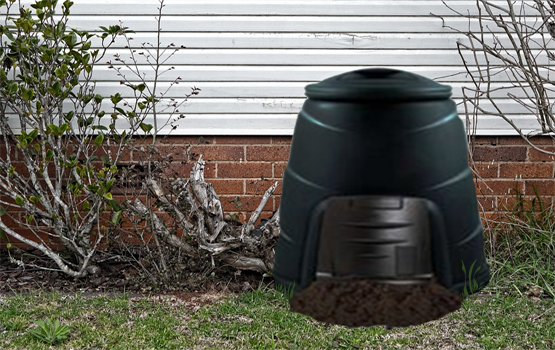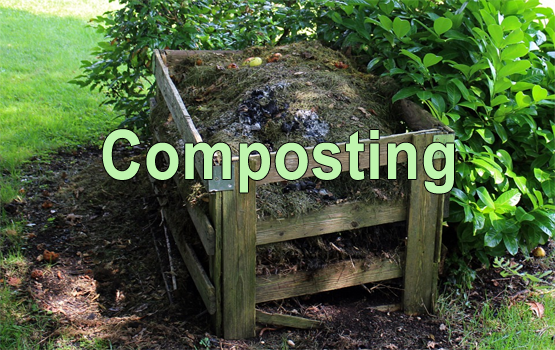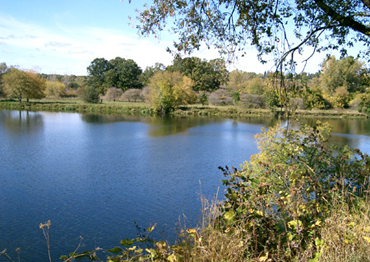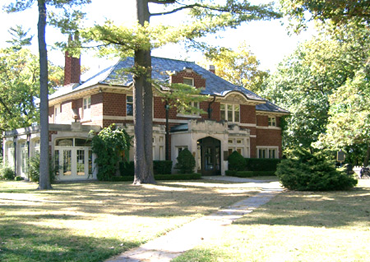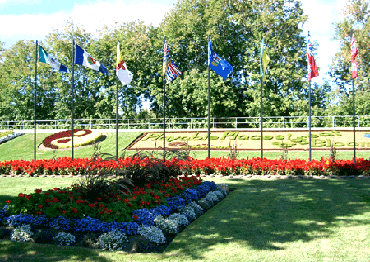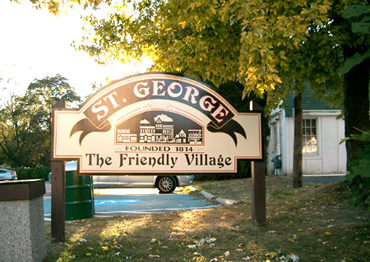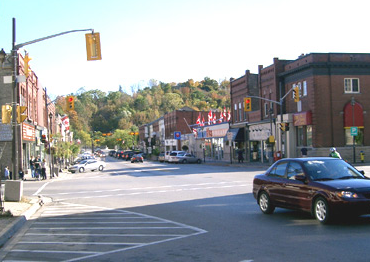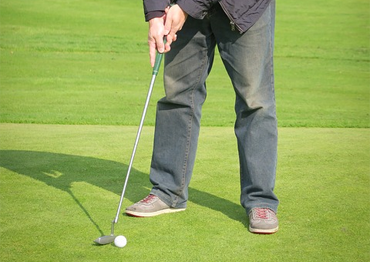Home Composting
Composting is the natural breakdown of organic material (usually from your kitchen, garden and yard) by micro-organisms (bacteria and fungi), insects and worms. It is nature's way of recycling and can reduce, or completely eliminate, the need for chemical fertilizers. Compost improves the overall structure of soils, returns nutrients and organic matter to the soil, and is great benefit to gardens. If you put organic material from your kitchen, garden and yard in a compost bin, you will remove these materials from curbside waste collection and save on landfill space. Composting also reduces greenhouse gases that are produced when organic material decomposes in a landfill without oxygen.
Did you know that approximately 30% of household waste in Ontario consists of organic material or food waste that is compostable?
Composting Tips:
- Add crushed egg shells and mussel shells to your compost. They won’t break down any further, but they will add valuable minerals such as calcium.
- It is very important to maintain a good mix of 'greens' (nitrogen rich materials like kitchen scraps and grass clippings), and 'browns' (carbon rich materials like dry fall leaves, shredded paper or shredded egg cartons and cardboard).
- When you are peeling vegetables in the kitchen, wrap the scraps in newspaper before adding them to your compost bin. The paper will be a good 'brown' balance for the 'green' peelings and it is also a good way of controlling any fruit flies you may get in your bin.
- Avoid adding to your compost bin any paper or card that has any foil or plastic bits on - such as some wrapping papers, window envelopes or foil lined drink cartons - as these will not break down and you’ll be left with scraps of plastic and foil in your end product compost.
- To prevent insects hovering around your backyard composter, always bury kitchen scraps with a layer of 'browns'. If brown materials are not available, cover with a layer of compost or soil.
- If nothing is happening in your compost pile, you may not have enough nitrogen-rich green materials or your compost pile is too dry. Add in some natural nitrogen source like kitchen scraps, fresh grass clippings and some moisture. Mix well and check often. Keep in mind that small compost piles may not heat up, so add more materials.
- If your backyard composter has a bad odour, your compost pile is too wet or does not have enough air. You should turn the pile (mixing the bottom to top and outside to inside). If the compost pile is still too wet, add some dry brown materials.
- Always wear gloves when handling compost.
- If you don’t need to use all of your finished compost, you can bag it up for future use. You can also store finished compost for up to a year. Old plastic sand bags are great for storing finished compost.
- You would like to compost old shredded paper and cardboard, but you are worried about the chemical composition of print ink and risk of an accumulated build up of harmful chemicals in the soil from composting printed paper and cardboard?
- Well, you are not the only one. Your concern was the subject of a piece of research by the Centre for Alternative Technology. They ran a series of field trials and discovered that compost made from paper containing newsprint had no effect on the growth of plants. Whilst in the past some inks were metal based, vegetable based inks are now the norm so these biodegrade safely like the other waste in your compost bin and should not affect the growth of plants at all.
FREE COMPOST AT MOHAWK STREET LANDFILL SITE
Starting May 7: Free compost while quantities last, Mohawk Street Landfill, Monday to Saturday, 8:00 am to 4:00 pm. Bag-your-own! Bring a shovel & containers, limit 2 bags per day.
COMPOSTING BIN
Buy the bin that makes your garden more beautiful and helps the environment. Recycling your kitchen and garden waste in your compost bin is easy to do, great for your garden and for the environment. So why not start now and spread the word and get your neighbours on board by introducing them to home composting?
BACKYARD COMPOSTERS:
Backyard composters are available at the Mohawk Street Landfill Site, Monday to Saturday, 8:00 am - 5:00 pm. Cost is $20 per unit and available to Brantford residents only.
COMPOSTING
A good composting technique is to build your compost pile in layers of 'greens' and 'browns' so you won't need to mix and turn the pile.
Always try to cover or mix 'greens' (especially food wastes) with a layer of 'browns'. If you don't have a supply of dry leaves, you can use paper, sawdust, wood shavings, soil or compost to cover 'greens'.
